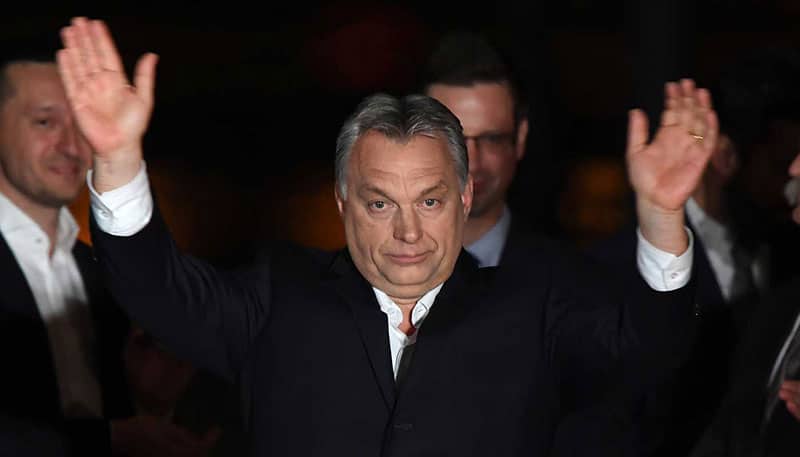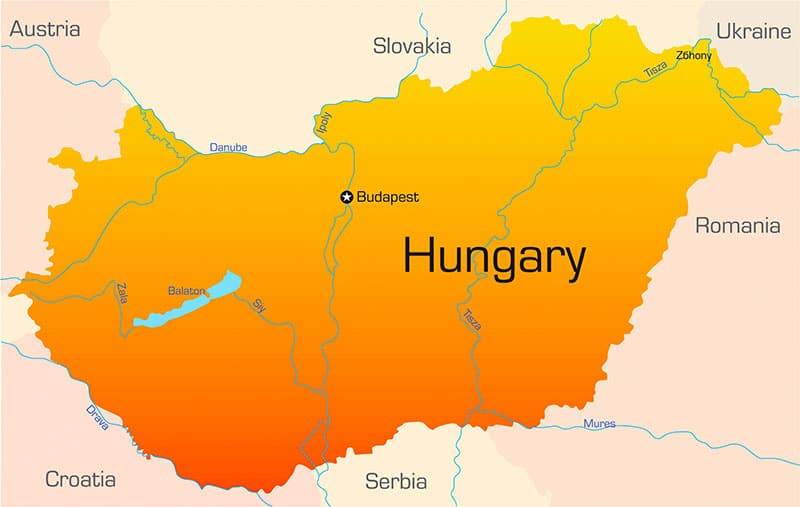
Although inflation in Hungary fell to 17.6% in July 2023, it was still the highest in the EU (5.3% in the eurozone). This forced many Hungarians to limit their consumption. As the German newspaper Handelsblatt reports, retail sales fell by 4.5% over the course of the year. The government introduced the price cover for the most essential foodstuffs in the spring, but with summer inflation cuts, the ceiling has been set for early August 2023.
The convenient two-thirds majority in Parliament allows Orbán to introduce various economic measures in addition to constitutional amendments. His frequent statements about preferential support for locals may sound patriotic to his electorate. But it only applies to those friends who agree with government policy.

Arbitrary Special Taxes
Foreign companies are in the worst situation because they have recently been subject to arbitrary special taxes. For example, cement manufacturers pay a “mining tax” on a certain price of cement, which is currently below production costs. There are three cement works in Hungary, two of which are joint ventures between Heidelberg Materials and the Swiss company Holcim. To minimise losses, the Swiss company Holcim has already reduced production. Since February 2023, brick manufacturers are subject to a similar regime to cement producers, but only those with a turnover of more than three billion forints (rund 7,7 Millionen Euro). Only foreign companies have such high sales figures: two from Austria and one from France.
The special taxes are part of Orbán’s strategy of forcing foreign companies to sell or licence their ownership. In this way, they make room for local investors, at least in the form of participation in the company. A year ago, the Prime Minister announced that the government had succeeded in increasing the share of domestic investors in the energy, banking, and media sectors. “But there are sectors where we don’t look good yet.” The policy of exclusion continues. The main objective of the measures is to engage followers with investments in themselves. A corrupt system is being created: not the best entrepreneur gets an assignment, but the one who belongs to the circle of the political leader. The competition is partially excluded.
Your Wealth, Our Priority: Altoo's Consolidation Power, Secure Document Management, and Seamless Stakeholder Sharing for High Net Worth Individuals. Preview Platform.
Support for selected
As Viktor Orbán believes he is following the latest trends, he wants to make the country one of the largest producers of batteries for electric vehicles. Large corporations receive large financial subsidies when they come to Hungary. In some of these cases, the EU suspects the government of providing prohibited aid. Chinese battery manufacturer CATL plans to invest 7.3 billion euros in a plant in the eastern Hungarian city of Debrecen. This is one of the largest factory investments ever made in Europe. Other battery manufacturers from Asia are already in Hungary or are planning to operate there. And they also bring their labour.
Experts have for some time criticised the fact that foreign companies in Hungary almost only produce but do little research in the country or organise sales from there. Thus, the country benefits only limitedly from foreign investment. Hungary is threatening to remain economically stuck.
The country is becoming an ever-increasing problem for the EU. Not only for their controversial LGBTQ+ policy, where a place for homosexuals is completely excluded. Orbán is violating the rules of the EU’s internal market by bullying certain foreign companies and promoting others in an opaque way.
EU and Soros as Enemies
At home, in the traditional and conservative society that still dreams of Great Hungary (in 1920, following the Treaty of Trianon, Hungary had to give up 72% of its territory and lost almost three million people, mostly ethnic minorities), the thought-out struggle against Brussels always brings political points to him.
As far as individuals are concerned, there is also an arch-enemy: George Soros, the Hungarian-American businessman and philanthropist. Soros, “the most corrupt man in the world,” is working in Brussels “to harm Hungarians wherever he can,” the prime minister stated in an interview with Kossuth Radio three years ago. “It is not right for us to sit here, repel these attacks, and pretend that it is a matter of course,” he added. Orbán also said it required “great achievements” to prevent Soros from “inflicting many billions of euros in damage on Hungary”.
George Soros supported Viktor Orbán and a number of other officials in the late 1980s and early 1990s. “I supported Orbán because he was a very active supporter of open society at the time.” But he became an exploiter and the creator of a mafia state,” Soros said in an interview with The Guardian in 2019. George Soros regularly criticises the Hungarian president for “building a sophisticated kleptocratic system to blindly rob the country.”









